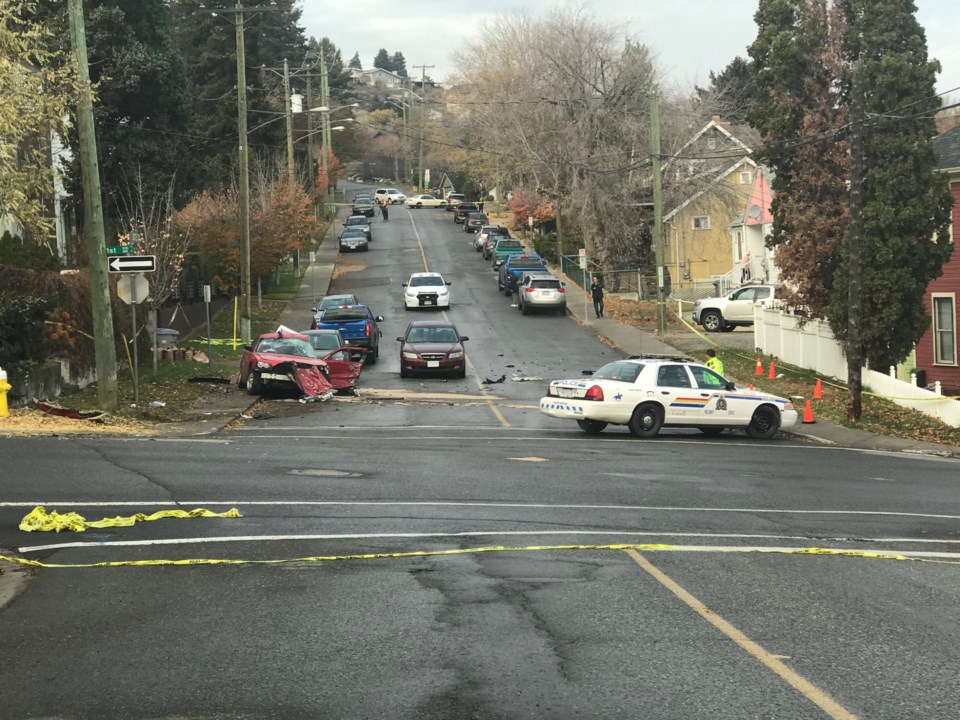Less than 12 months into his three-year prison sentence, a Kamloops man who fled after drunkenly causing a downtown collision that killed three young Nigerians has been granted parole.
Reid McKnight will not be allowed to drink or drive while free on parole, which he was granted following a hearing earlier this month. The Parole Board of Canada's written decision, dated Nov. 7, was made public last week following a request by Castanet Kamloops.
McKnight, a 33-year-old former Canadian Forces soldier, to serve three years in federal prison. He pleaded guilty to one count each of dangerous driving causing death and failure to stop at an accident causing death.
McKnight was driving drunk on Nov. 3, 2019, when his pickup truck slammed into a car at First Avenue and Battle Street. Oluwafeyisola David Adebowale, Daniel Ifeanyi Okocha and Kelvin Adeojo Oluwatosin were killed in the early-morning crash. A fourth occupant of the vehicle survived.
According to an agreed statement of facts read into court during his sentencing, data retrieved from McKnight’s truck showed he was travelling 110 km/h at the time of the collision — more than double the speed limit — and brakes were applied two tenths of a second prior to impact.
McKnight fled the scene on foot but left his wallet in the truck, which was also registered in his name. Police arrested him within hours but he was not charged until the following year.
During his parole hearing, McKnight told the board he ran from the scene because he was “too cowardly to deal with the consequences” of his actions, according to the written decision.
Court heard McKnight blew through a stop sign on Battle Street and struck the sedan as it headed south up First Avenue. The four young men inside the car, each of whom had been international students at Thompson Rivers University, were returning home from a night out downtown.
McKnight told the parole board he has no recollection of the collision but he accepts his guilt. He said he was drinking to celebrate the completion of a program that advanced his military career.
McKnight was discharged from the military as a result of his conviction. He worked until the day of his sentencing.
In their decision, parole board officials described McKnight as a model prisoner — applying for a trades program and working in a community garden while behind bars. With his military career now over, he said he hopes to further his educational and employment goals while on parole.
The board also said it found McKnight’s “profound remorse” to be “genuine and forthright.”
McKnight was granted day parole on Nov. 7 and was also granted full parole for when his eligibility kicks in on Dec. 3 — one year after the commencement of his sentence. Federal offenders are eligible for parole after serving a third of their sentence.
The Parole Board of Canada document said McKnight has residence lined up at a halfway house in an unnamed community.
Other conditions of his parole will require McKnight to follow a treatment plan, stay away from bars and pubs, have no contact with the survivor of the crash or any victims’ families and to reside at a halfway house for at least five months.


